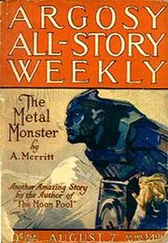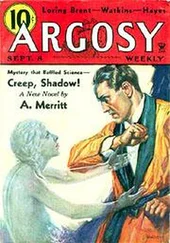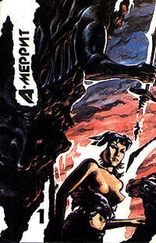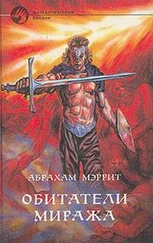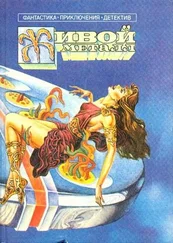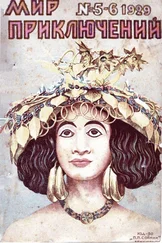The Demoiselle threw back her head, laughing unrestrainedly. She put a hand on my arm: "A shadow of that wicked Dahut the White! Alain de Carnac – one of my shadows!"
De Keradel's face was imperturbable. He said: "So. Now do I see. Well, Dr. Bennett, if I accept your theory of witchcraft, what was the purpose behind it?"
Bill answered: "Money, I think. I'm hoping to be sure soon."
De Keradel leaned back, regarding Lowell almost benevolently. He said: "Not necessarily money. To quote Dr. Caranac, it could perhaps be only art for art's sake. Self-expression of a true artist. Pride. I once knew well – what without doubt the superstitious would have called her a witch – who had that pride of workmanship. This will interest you, Dr. Lowell. It was in Prague – "
I saw Lowell start, violently; de Keradel went blandly on: "A true artist, who practiced her art, or used her wisdom – or, if you prefer, Dr. Bennett, practiced her witchcraft – solely for the satisfaction it gave her as an artist. Among other things, so it was whispered, she could imprison something of one she had killed within little dolls made in that one's image, animating them; and then make them do her will – " He leaned toward Lowell, solicitously – "Are you ill, Dr. Lowell?"
Lowell was paper white; his eyes fixed on de Keradel and filled with incredulous recognition. He recovered himself; said in a firm voice: "A pang I sometimes suffer. It is nothing. Go on."
De Keradel said: "A truly great – ah, witch, Dr. Bennett. Although I would not call her witch but mistress of ancient secrets, lost wisdom. She went from Prague to this city. Arriving, I tried to find her. I learned where she had lived, but, alas! She and her niece had been burned to death – with her dolls, their home destroyed. A most mysterious fire. I was rather relieved. Frankly, I was glad, for I had been a little afraid of the doll- maker. I hold no grudge against those who encompassed her destruction – if it were deliberate. In fact – this may sound callous but you, my dear Dr. Lowell, will understand I am sure – in fact, I feel a certain gratitude to them – if they are."
He glanced at his watch, then spoke to the Demoiselle: "My daughter, we must be going. We are already late. The time has passed so pleasantly, so quickly – " He paused, then said with emphasis, slowly: "Had I the powers she had at her command – for powers she did have else I, de Keradel, would have felt no fear of her – I say, had I those powers, none who threatened me, none even who hampered me in what I had determined to do, would live long enough to become a serious menace. I am sure – " he looked sharply at Lowell, at Helen and Bill, let his pale eyes dwell for a moment on mine – "I am sure that even gratitude could not save them – nor those dear to them."
There was an odd silence. Bill broke it. He said, somberly: "Fair enough, de Keradel."
The Demoiselle arose, smiling. Helen led her to the hall. No one would have thought they hated each other. While de Keradel bade courteous farewell to Lowell, the Demoiselle drew close to me. She whispered:
"I will be awaiting you tomorrow, Alain de Carnac. At eight. We have much to say to each other. Do not fail me."
She slipped something in my hand. De Keradel said: "Soon I shall be ready for my greatest experiment. I look for you to witness it, Dr. Lowell. You too, Dr. Caranac… you… it will especially interest. Till then – adieu."
He kissed Helen's hand; bowed to Bill. I wondered with vague misgivings why he had not included them in the invitation.
At the door the Demoiselle turned, touched Helen lightly on the cheek. She said: "Some there be that shadows kiss…"
Her laughter rippled like little waves as she swept down the steps after her father and into the waiting automobile.
7. – THE DOLL-MAKER'S LOVER
Briggs closed the door and walked away. We four stood in the hall, silent. Suddenly Helen stamped a foot. She said, furiously:
"Damn her! She tried to make me feel like a slave girl. As if I were one of your lesser concubines, Alan, whom it amused your Queen to notice."
I grinned, for it was almost exactly what I had thought. She said, viciously:
"I saw her whispering to you. I suppose she was asking you to come up'n see her sometime." She gave a Mae West wriggle.
I opened my hand and looked at what the Demoiselle had slipped into it. It was an extremely thin silver bracelet's half-inch band almost as flexible as heavy silk. Set in it was a polished, roughly oval black pebble. Incised upon its smoothed outer face, then filled in with some red material, was the symbol of the power of the ancient god of Ocean, who had many names long centuries before the Greeks named him Poseidon; the three-tined fork; his trident with which he governed his billows. It was one of those mysterious talismans of the swarthy little Azilian-Tardenois people who some seventeen thousand years ago wiped out the tall, big-brained, fair-haired and blue-eyed Cro-Magnons, who, like them, came from none knows where into Western Europe. Along the silver band, its jaws holding the pebble, was crudely cut a winged serpent. Yes, I knew what that pebble was, right enough. But what puzzled me was the conviction that I also knew this particular stone and bracelet. That I had seen them many times before… could even read the symbol… if only I could force remembrance…
Perhaps if I put it around my wrist I would remember –
Helen struck the bracelet from my hand. She put her heel on it and ground it into the rug. She said:
"That's the second time tonight that she-devil has tried to snap her manacles on you."
I bent down to pick up the bracelet, and she kicked it away.
Bill stooped and retrieved it. He handed it to me and I dropped it in my pocket. Bill said, sharply:
"Pipe down, Helen! He has to go through with it. He's probably safer than you and I are, at that."
Helen said, passionately:
"Let her try to get him!"
She looked at me, grimly: "But I don't exactly trust you with the Demoiselle, Alan. Something rotten in Denmark there… something queer between you. I wouldn't hunger after that white fleshpot of Egypt if I were you. There've been a lot of misguided moths sipping at that flower."
I flushed: "Your frankness, darling, is of your generation, and your metaphors as mixed as its morals. Nevertheless, you need not be jealous of the Demoiselle."
That was a lie, of course. I felt the vague, inexplicable fear of her, suspicion, and a lurking, inexorable hatred – yet there was something else. She was very beautiful. Never could I love her in the way I could Helen. Still, she had something that Helen had not; something which without doubt was evil… but an evil I had drunk of long and long and long ago… and must drink of… again – and I knew a deep thirst that could be quenched only by that evil…
Helen said, quietly:
"I could not be jealous of her. I am afraid of her – not for myself but for you."
Dr. Lowell seemed to awaken. It was plain that he was sunk in his thoughts, he had heard none of our talk. He said:
"Let us go back to the table. I have something to say."
He walked to the stairs, and he walked like a man grown suddenly old. As we followed, Bill said to me:
"Well, de Keradel was fair enough. He gave us warning."
I asked: "Warning of what?"
Bill answered: "Didn't you get it? Warning not to pursue the matter of Dick's death any further. They didn't find out all they hoped to. But they found out enough. I wanted them to. And I did find out what I wanted."
I asked: "What was that?"
"That they're Dick's murderers," he answered.
Before I could ask any more questions we were seated at the table. Dr. Lowell rang for coffee, then dismissed the butler. He tipped a full glass of brandy into his coffee, and drank it. He said:
Читать дальше
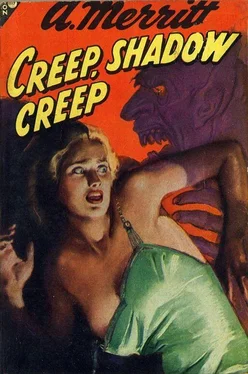
![Абрахам Меррит - Лунный бассейн [Лунная заводь]](/books/20623/abraham-merrit-lunnyj-bassejn-lunnaya-zavod-thumb.webp)

